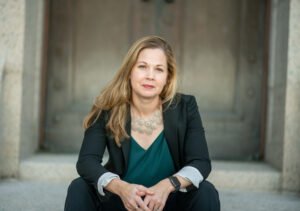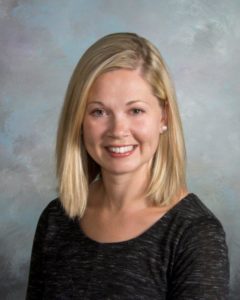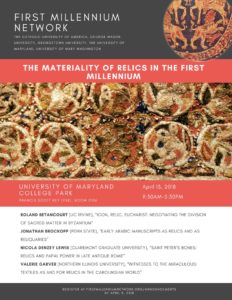
Assistant Professor of Religious Studies Jennifer Barry
Jennifer Barry, Associate Professor of Religious Studies, has been awarded the 2024 National Endowment for the Humanities Summer stipend to begin work on her next book-length project titled Scandalous Christian Histories.
The stipend will be used to dedicate full-time research to examine the use of scandal stories in the ecclesiastical histories of the early Christian church. Scandalous Christian Histories emphasize how the agendas and scandals found within the ecclesiastical histories shaped competing visions of the formative years of Christianity. The book will engage multiple disciplines from the fields of Early Christian studies, late Roman studies, gender studies, and ancient historiography. The interdisciplinary nature of this project contributes to current trends that focus on the subjective nature of historical writing and sheds new light on the gendered tropes, power dynamics, and manipulations employed by early Christian historians. With meticulous research of the primary sources and applied critical analysis, offers a new perspective on the process of writing early Christian history. Ultimately, the project will reshape how readers understand the past and spark discussions on the dynamics of power, gender, and manipulation in historical narratives.
Prof. Barry is currently on research leave for the 2023-2024 academic year as the Harvard, Loeb Classical Library Fellow
Barry participates in workshop at William and Mary
On Friday, April 12, 2024, Associate Professor Jennifer Barry participated in an invited workshop at the University of William and Mary. The workshop, titled “Studying Religion in the Ancient Mediterranean: Methods, Case Studies, and Insights” spotlighted pedagogical insights from scholars and highlighted student research projects. Barry discussed the evolution of research and provided students with insight into the publishing process as well as how scholarly ideas change over time. The discussion also centered on Barry’s expertise as a teaching-focused researcher and how she brings her ideas to the classroom at UMW.
Dr. Barry is currently on research leave as a Harvard, Classical Loeb Library Fellow for the 2023-2024 academic year. Her second book, Gender Violence in Late Antiquity, is now under review with the University of California Press.

